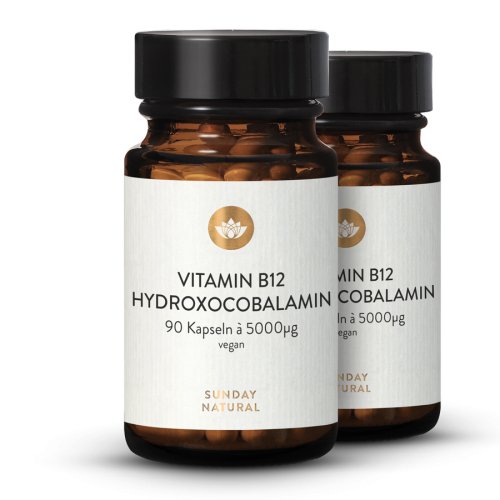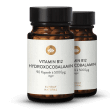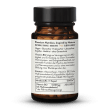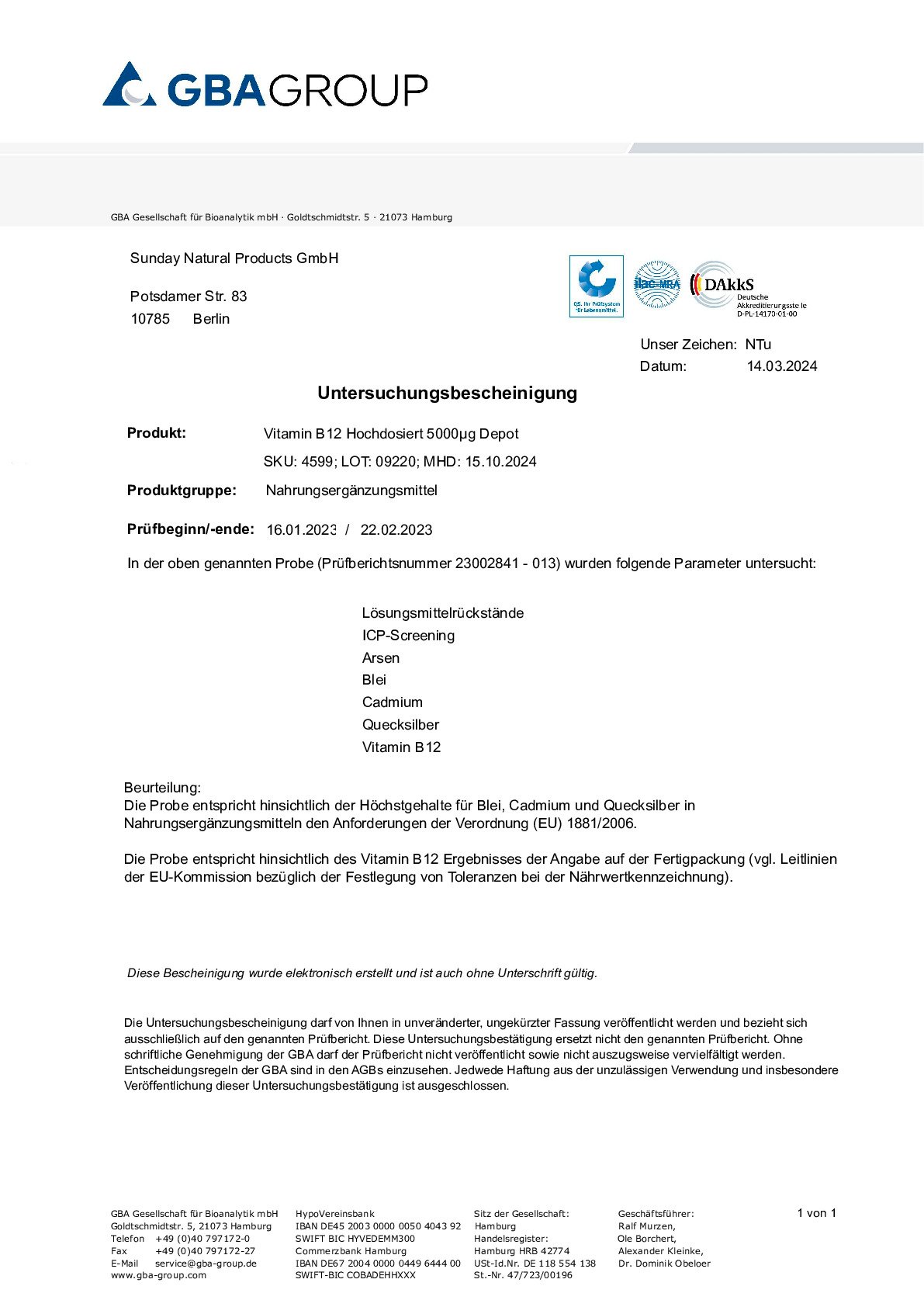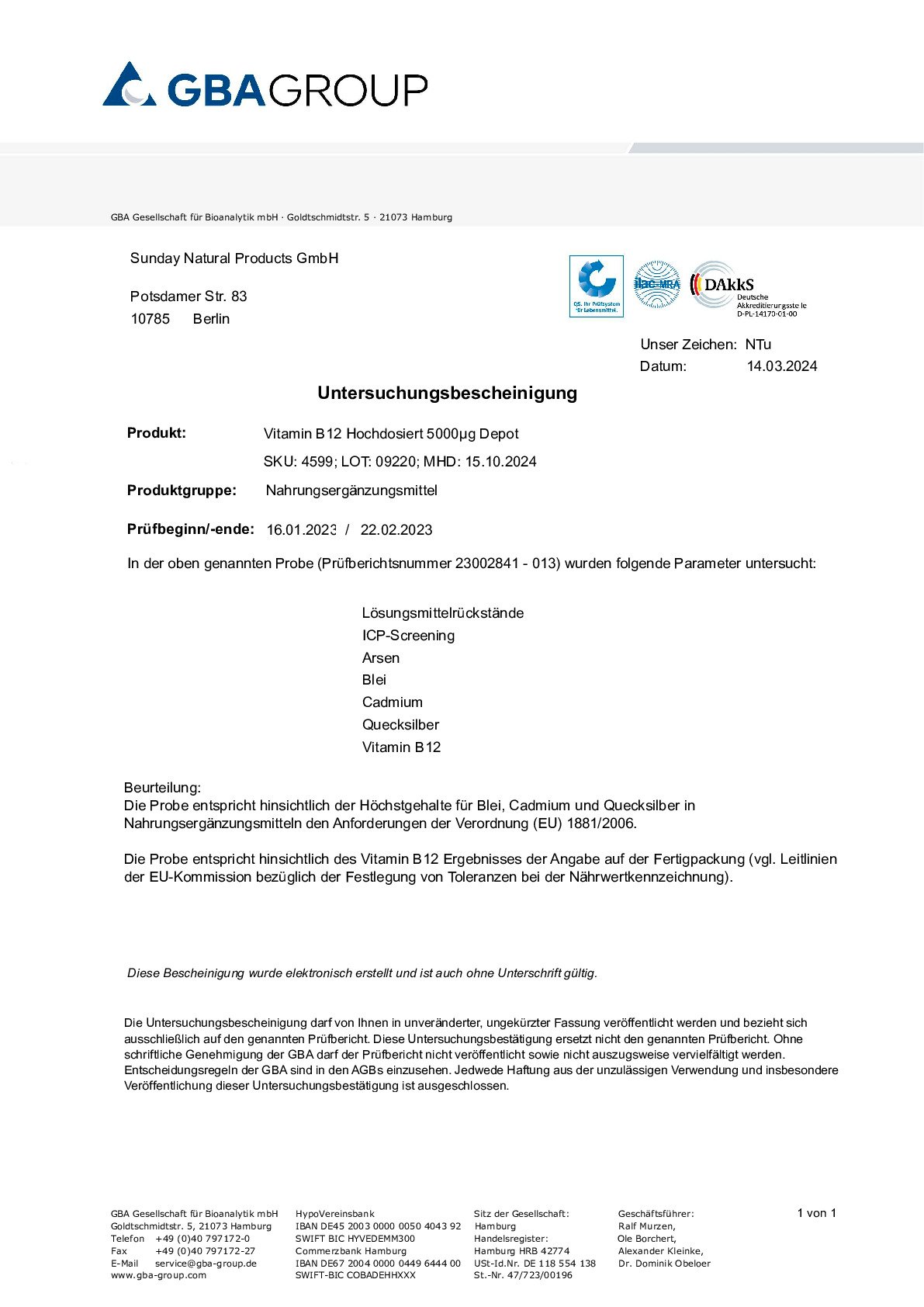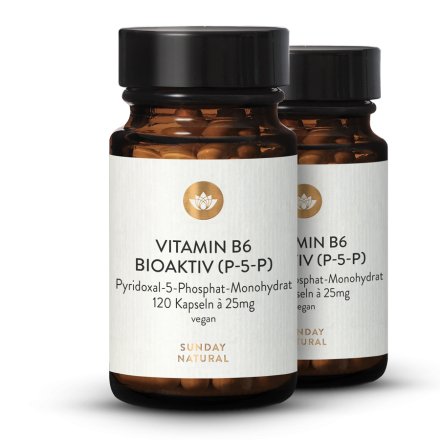VITAMIN B12 (COBALAMIN)
Vitamin B12 fulfils a number of important functions in the body. Among other things, it can help to reduce tiredness and fatigue and maintain a normal energy metabolism. It contributes to the normal functioning of the psyche, immune and nervous systems, supports the formation of red blood cells and is beneficial for normal homocysteine metabolism. The body also needs vitamin B12 for cell division. Vitamin B12 acts as a so-called coenzyme in the body, meaning it is necessary for certain enzymes in our body to fulfil their tasks. The associated reactions are directly dependent on vitamin B12 and cannot take place without the vitamin.
NATURAL, BIOACTIVE VITAMIN B12
Vitamin B12 exists in different chemical forms, each with different functions within the body. The natural forms of vitamin B12 that can be readily absorbed by the body are described as "bioactive coenzymes". Synthetic forms of Vitamin B12 such as cyanocobalamin must be first converted into a natural form by the body in order to be effective, which is why we use naturally bioactive forms of Vitamin B12 that the body can directly use.
Hydroxocobalamin
Hydroxocobalamin is a natural form of vitamin B12 found in many foods. Hydroxocobalamin can effectively remain in the body for longer periods of time, which is why this form of B12 is described as having good "depository" effects. Hydroxocobalamin can be easily converted by the body into the active coenzyme forms when needed.
Health Benefits of Vitamin B12 According to the European Food Safety Authority (EFSA):
Vitamin B12 contributes to:
- Normal energy-yielding metabolism
- Normal functioning of the nervous system
- Normal homocysteine metabolism
- Normal psychological function
- Normal red blood cell formation
- The normal function of the immune system
- The reduction of tiredness and fatigue
- Vitamin B12 has a role in the process of cell division



